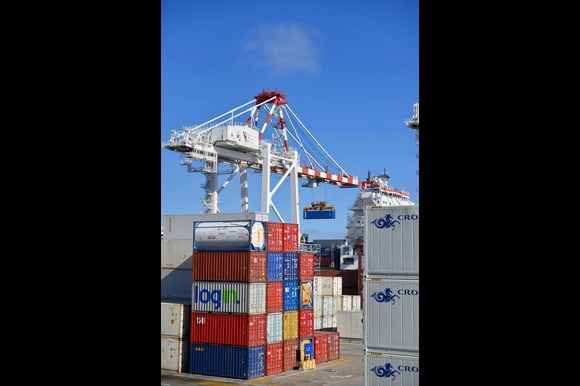UK and India have finalized a long-awaited trade agreement that aims to significantly boost economic relations between the two nations by easing export restrictions, lowering tariffs, and fostering investment opportunities. The comprehensive deal, which took three years to negotiate, is being hailed by both governments as a historic and mutually beneficial milestone.
Under the terms of the new deal, UK exporters will find it easier to sell a range of goods to the Indian market, including whisky, gin, cars, medical devices, cosmetics, and food products like lamb, salmon, and biscuits. Tariffs on many of these goods—some of which were previously as high as 100%—will be dramatically reduced. For example, the 100% duty on luxury UK-made cars will be brought down to 10%, although these reductions will be subject to quotas.
British alcoholic beverages, particularly gin and whisky, will also benefit from significant tariff cuts, with initial reductions halving the current 150% rate to 75%, followed by further gradual decreases. Similarly, UK producers in sectors such as aerospace, electronics, and high-end consumer goods are expected to gain improved access to the vast Indian market.
On the Indian side, exporters will benefit from lower tariffs on a range of goods entering the UK, including clothing, footwear, jewellery, gems, and various food items like frozen prawns. These changes are expected to make Indian products more competitive in the British market, thereby boosting exports and creating jobs at home.
The deal also includes provisions to facilitate service-sector collaboration, enabling British firms to compete more effectively for Indian public procurement contracts. This is particularly relevant for sectors such as technology, finance, and professional services, where the UK has a strong global presence.

Economic Impact
The British government described the agreement as the “largest and most economically significant” bilateral trade deal the UK has signed since it left the European Union in 2020. According to official estimates, the deal could increase annual UK-India trade by £25.5 billion by 2040, adding substantial momentum to the already sizeable £42.6 billion trade volume recorded in 2023.
UK Prime Minister Sir Keir Starmer praised the agreement, emphasizing its potential to strengthen the economy and benefit both British businesses and consumers. He described it as a deal that would “deliver for British people and business.”
Indian Prime Minister Narendra Modi echoed this sentiment, calling the agreement a “historic milestone” that is both ambitious and balanced. He emphasized the deal’s potential to accelerate trade, investment, job creation, and innovation across both economies.
Social Security Exemption
In a unique addition to the trade pact, the agreement includes a provision that exempts certain Indian and British workers from making social security contributions in their host country. Under this new arrangement, Indian professionals temporarily working in the UK—and vice versa—will only need to pay social security in their home country. The Indian government described this clause as an “unprecedented achievement.”
This exemption applies specifically to employees transferred between offices of multinational companies and aims to reduce the financial and administrative burden on both workers and their employers.
The UK government clarified that despite this exemption, Indian nationals working in the UK will still be required to pay the Immigration Health Surcharge, ensuring continued support for the NHS.
Political and Public Reactions
While the deal has been broadly welcomed by business groups, it has not been without political criticism. Kemi Badenoch, leader of the opposition, described the deal as “two-tier taxes from two-tier Keir,” referring to Labour’s recent increase in employer National Insurance contributions. She implied the government was giving preferential treatment to foreign firms while raising costs for domestic employers.
Shadow Trade Secretary Andrew Griffith added, “Every time Labour negotiates, Britain loses,” while Liberal Democrat deputy leader Daisy Cooper voiced concerns about tax implications for Indian workers in the UK, urging Parliament to have a say on the final agreement.
In response, the British government insisted the deal was fair, transparent, and beneficial to all parties, and reassured that domestic tax revenues and services such as the NHS would not be negatively impacted.
Global and Business Response
The UK-India trade agreement comes at a time when global trade liberalization has been under pressure, particularly in light of protectionist measures taken by the United States under former President Donald Trump. Against this backdrop, the deal is being viewed as a win for open markets and multilateral cooperation.
Rain Newton-Smith, Chief Executive of the Confederation of British Industry (CBI), welcomed the agreement, describing it as a “beacon of hope amidst the spectre of protectionism.” She said UK businesses see “myriad opportunities” in India, given its rapidly growing economy and large consumer base.
Allie Renison, a former government trade adviser and now with communications firm SEC Newgate, called the deal potentially “transformational,” citing India’s status as one of the fastest-growing major economies in the world with significant barriers to entry—barriers which this deal helps to dismantle.
Although the agreement has been signed, it may take up to a year to come into full force as both sides complete legal and administrative formalities. When implemented, the deal is expected to serve as a major engine for growth, job creation, and innovation across a range of industries in both countries.
With India poised to become the world’s third-largest economy in the coming years, and the UK keen to reposition itself as a global trading power post-Brexit, the deal is seen as a timely and strategic partnership with long-term economic benefits.






